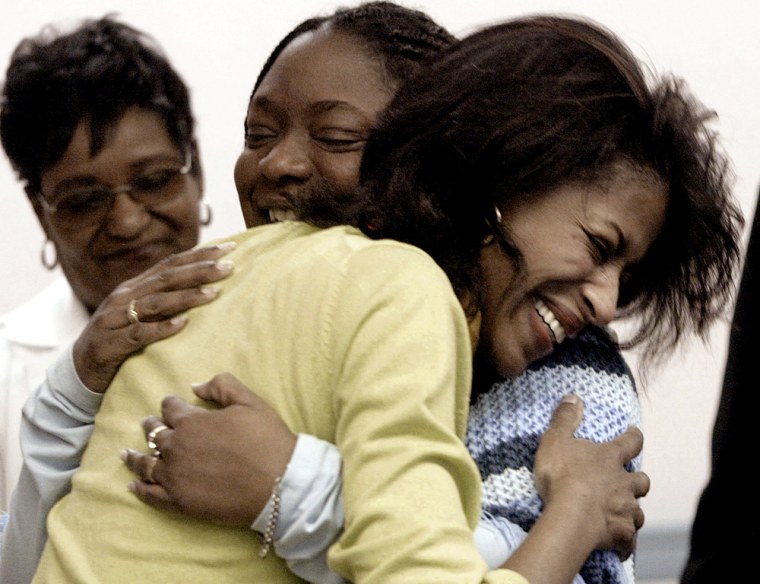Madolena Key was scheduled to donate a kidney to her husband in 2002 when a perfectly matched organ from a deceased donor became available.
Just like that, Key’s kidney wasn’t needed. Until she thought about it for awhile.
Key contacted Mid-America Transplant Services the following January and said she would like to donate her kidney anyway — to someone else in need.
Her husband’s ordeal with kidney disease and dialysis had taught Key that 60,000 people in the United States are waiting for a kidney transplant.
“I thought ’why not do that for someone else?”’ said Key, 43, a bank manager.
On Wednesday, Key and the recipient of her kidney, Tracy Griffin, 37, met for the first time at Barnes-Jewish Hospital, where doctors performed the surgeries in November 2003. Key leaped from her chair to meet Griffin, and the women hugged and wept, exchanging greetings as they wiped away tears.
“I’ve got a large family that’s waiting to meet you,” Key told Griffin, who has had diabetes since childhood.
Griffin, who is studying to be a respiratory therapist, said her siblings also have diabetes and could not be donors.
Key’s gift to Griffin is one of only 263 in the country since the first such donation in 1998, according to the Richmond, Va.-based United Network for Organ Sharing, which oversees the nation’s organ procurement and transplantation network.
Second Chance Saint Louis, Mid-America’s living donor program, is one of only three programs in the country that screens and evaluates persons for altruistic organ donations.
Second Chance has coordinated seven altruistic donations — six kidney, one liver — since it began in 2002, said Merry Smith. Before a coordinating program was in place, offers from strangers often went unused.
Living donor candidates must be in excellent health, undergo medical and psychological tests and other screenings. Key said the extensive screening made her confident her choice was the right decision.
